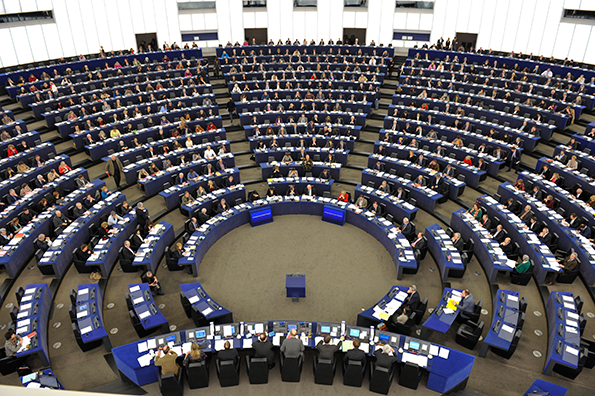
The European Parliament voted Thursday in favour of an extreme report which recognises abortion as a “human right” and redefines conscientious objection as a “denial of medical care.” Every Irish MEP voted in favour.
The so-called ‘Matic report’ passed with 378 MEPs voting in favour, 255 against and 42 abstentions.
The Pro-life Campaign called it “one of the most extreme proposals to ever come before the parliament and completely undermines freedom of conscience protections for healthcare workers”.
“Officially declaring abortion as “healthcare” and a “human right” abandons evidence-based medicine and authentic human rights and imposes in its place the unethical and unscientific ideological diktats of extreme pro-abortion politicians”.
The Bishop of Elphin, Kevin Doran expressed disappointment that “every Irish MEP voted today against the right to freedom of conscience which is recognised in the Universal Declaration of Human Rights and in favour of the non-existent human right to abortion”.
Meanwhile, an abortion referendum was passed in Gibraltar. The result was Yes: 62.03% and No: 36.62%. It means that a liberal abortion law will now be introduced in the territory, similar to the law introduced in Ireland in 2019.
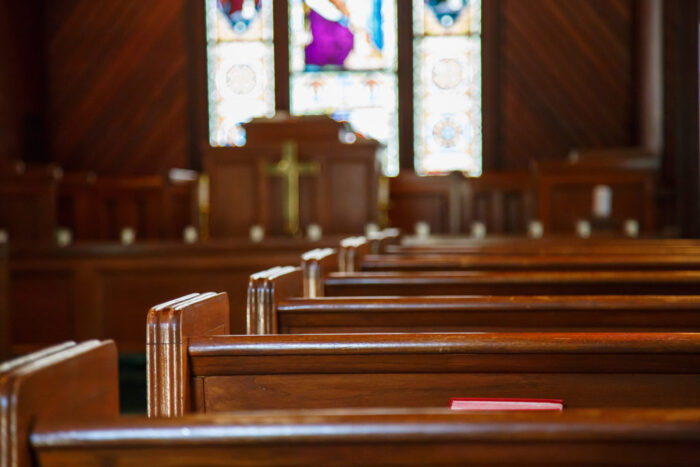
A HSE letter has recommended to the dioceses of Cashel-Emily, Limerick, and Killaloe that they defer first holy communion and confirmations to September, to help curb the spread of Covid-19.
The Archbishop of Cashel-Emly Kieran O’Reilly, described the letter as “disappointing”.
In a response to local clergy, parents, guardians and school principals, Archbishop O’Reilly states that he recognises “ceremonies are already scheduled” and that the HSE’s recommendation “is disappointing at this time”. He does not say ceremonies should be deferred, but states that serious consideration must be given to the the HSE advice.
A letter signed by Dr Rose Fitzgerald, Director of the Department of Public Health Mid West, was sent on Tuesday, stating, “it is our view that these ceremonies should be deferred unit September 2021, due to the current high rate of Covid-19 infection in the mid-west region, [and that], by September most of those eligible should be fully vaccinated against Covid”.
Meanwhile, many priests in Limerick have said they are planning to press on with First Communion and Confirmation ceremonies despite HSE advice.

The EU religious freedom envoy is merely ‘a sop’ without proper support, according to the ACN Ireland director. Dr Michael Kinsella said the position risks becoming “all talk and no substance” without the requisite funding and staffing, a spokesperson for a charity for persecuted Christians said. The statement came after a Brussels based EU bishops’ conference criticised the envoy’s “limited mandate and resources”.
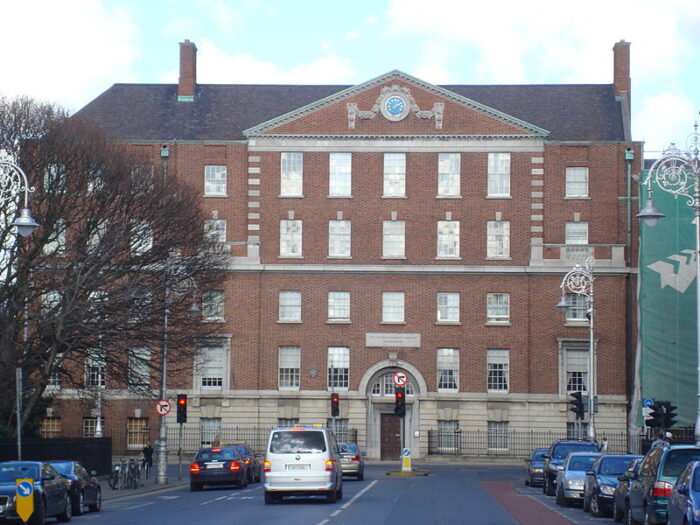
The National Maternity Hospital gave no apology for its role in the abortion of a misdiagnosed unborn child, as Dáil questions were raised about why the State funded its legal defence, and pro-life groups sought assurances from the Minister for Health that no such scenario would ever come to pass again.
On Tuesday, the hospital, five consultants at Merrion Fetal Health clinic, and a Glasgow lab accepted legal liability, and on Wednesday a settlement was agreed. However, solicitor for the couple, Caoimhe Haughey tweeted ”#WrongfulTermination. No APOLOGY, not a modicum of remorse or regret on the part of the National Maternity Hospital nor the Five Consultants”.
Separately, Peadar Toibin used a debate on the proposed relocation of the National Maternity Hospital to call for a full public inquiry into case. He also proposed an amendment to Social Democrats motion seeking explanation for why the State funded the legal defence of the private clinic defendant in that case.
Meanwhile, the Pro-Life Campaign have asked “how many other babies have lost their lives under Ireland’s new abortion law as a result of parents being given a misdiagnosis regarding the health of their baby?”
In addition, they asked what assurances “can the Minister for Health give to women and parents that the baby Christopher case was an isolated case since the law took effect in 2019”.
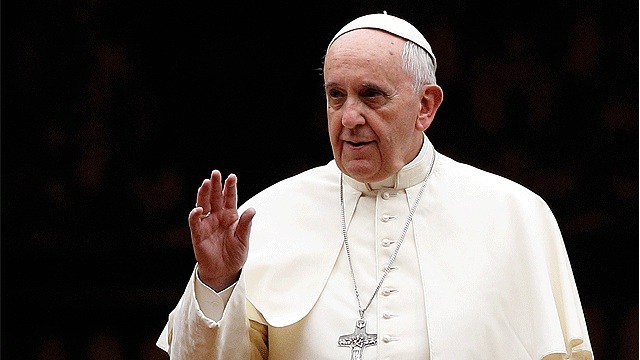
The Vatican has used a diplomatic channel to protest some aspects of a draft Italian hate-crime bill.
The so-called “Zan bill” is meant to combat intolerance of homosexuality and transgenderism, but the Holy See has argued that the generic wording of the bill would violate the guarantee of religious freedom by essentially outlawing Church teaching on marriage and sexuality.
In an interview this week, Italian Cardinal Pietro Parolin, the Vatican’s Secretary of State, stressed that in no way had they asked for the law to be blocked.
“We are against any attitude or gesture of intolerance of hatred towards people because of their sexual orientation, as well as their ethnicity or their beliefs,” he said, insisting that for the Vatican, the issue involves “problems that could arise if a test with vague and uncertain contents were adopted”.
Specifically, he said that without a proper definition, the concept of discrimination in the bill risks “making any possible distinction between man and woman punishable, with consequences that can prove to be paradoxical,” adding that, “the need for definition is particularly important because the legislation moves in an area of criminal relevance where, as is well noted, what is allowed and what is forbidden must be well determined”.
Italian jurist and professor Carlo Cardia, a former member of the joint commission tasked with revising the Holy See’s concordat with Italy, said he believes the bill as currently written is “unconstitutional,” and that freedom of expression is at stake.
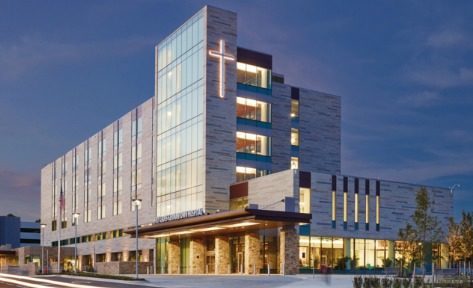
The former Master of the National Maternity Hospital (NMH) Dr Peter Boylan has again raised the coherence of the ethos of the various parties involved in the proposed relocation of the National Maternity Hospital.
He has claimed the Catholic Church could not give permission for a gift of land to build a hospital that would conduct abortion, even though abortions are currently taking place at St Vincent’s hospital which was founded by the Sisters of Charity and beside which the new NMH will be built under current plans.
In addition, the Vatican has already given the nuns permission to transfer to St Vincent’s Holdings, a charitable company, the site upon which the hospital would be built.
However, Dr Boylan told RTÉ’s DriveTime: “There is no way that the Sisters of Charity will be able to hand over ownership of the land without the permission of the Vatican. The Vatican will not give permission to build a hospital in which abortions will take place”.
St Vincent’s Holdings received a letter last year from law firm, McCann FitzGerald, which said nothing in the charity’s Constitution meant they were bound by canon law.
This is so despite the company’s documents pledging that they would uphold the values and vision of the founder of the Sisters of Charity, Sr Mary Aikenhead.
Archbishop Eamon Martin has previously rejected an argument that the Sisters were engaged in formal or proximate material cooperation with abortion as, he said, “the clear intention of the Sisters in transferring the land and property was for the purposes of a new and much-needed NMH, and that this intention dated back several years, predating the regrettable removal of the Eighth Amendment in the Constitution of Ireland which sadly has given way to a much more liberal abortion regime in this country”.

The National Maternity Hospital, five medical consultants, and a Glasgow laboratory have conceded liability in full in a wrongful abortion case.
Rebecca Price and Patrick Kiely were told in early 2019 that pre-natal tests showed their unborn baby certainly had Trisomy 18 and the pregnancy was not viable. They were advised “in no uncertain terms” that there was no point in waiting for the results of a more comprehensive chromosomal analysis.
Ms Price said she followed the advice of her consultant and had an abortion at the National Maternity Hospital.
Afterwards, it was discovered that the third test involving a fuller analysis of the baby’s chromosomes showed it did not have the condition.
Ms Price says she suffered intense nervous shock, realising that she had aborted a normal, healthy baby.
Ms Price says the management of her pregnancy was grossly substandard and displayed utter genetic illiteracy culminating in the tragic and unnecessary abortion of her son and incalculable loss to her and to Mr Kiely.
She said she had been left with a devastating sense of loss, which could not be filled.

The St Vincent’s Hospital Group (SVHG) has said it must retain ownership of the site that the new National Maternity Hospital is due to be built on even while reiterating that abortions and other procedures contrary to Catholic ethics would be carried out there.
In a statement the group said it is “more than willing” to meet the Government to discuss plans, but “for the delivery of integrated patient care on the Elm Park Campus, SVHG must retain ownership of the site”.
The Government has said it wants to buy the land that the new hospital will be located on amid concerns about ownership and religious ethos.
In a statement on Tuesday, the St Vincent’s Healthcare Group said it “remains committed” to the new hospital.
The group said that “for the avoidance of doubt” the “new National Maternity Hospital will be clinically independent.”
“There will be no religious or Vatican influence”.
The statement added: “All medical procedures, in accordance with the laws of the land, are available in SVHG hospitals, including pregnancy termination, tubal ligation and gender reassignment procedures.”

UK government proposals to make Covid-19 vaccinations mandatory for care home workers and other healthcare professionals are ‘profoundly unethical’, according to a Catholic bioethics expert.
In a statement, David Albert Jones, Director of the Anscombe Bioethics Centre, said threats to dismiss or redeploy staff “fails to show respect for those on whom society depends to deliver care, and who have also suffered disproportionate risk and hardship during this pandemic.”
“Such threats also undermine the freedom of the consent that is needed before administering vaccination, or any other medicine.”
Jones added: “Many people, including Pope Francis, have argued that in the current circumstance people have a prima facie duty to accept vaccination against COVID-19. However, insofar as there is such a duty this does not apply in the same way to all, but depends on people’s circumstances. Furthermore, such a duty is not something for public authorities to impose on its population, and especially not on those care workers to whom we, as a society, owe so much.”
Jones continues: “The question that needs to be asked is why people have been reluctant to accept vaccination when it is available. What is needed is an approach that builds trust and also maintains goodwill within the team. Good care depends above all on goodwill and happiness at work among the staff. Staff need to be listened to and to have their concerns addressed or their reasons understood.”
Leading psychiatrists have expressed concern at how quickly safeguards can be removed from assisted suicide legislation and questioned whether it can truly protect the most vulnerable.
In a letter to the Irish Times, Dr Eric Kelleher and Prof Anne Doherty of the College Of Psychiatrists said the experience of Canada demonstrated the reality of the ‘slippery slope’.
“Although those with mental illness alone were initially excluded from accessing physician assisted suicide and euthanasia in 2016, it was subsequently argued that this was discriminatory. Canadian legislators must now determine criteria for those with mental illness, and which suicides are to be assisted and which are to be prevented”.
They added that mental illness, primarily depression, is common in those with chronic illness and cancer, while certain mental disorders can lead to abnormal beliefs about one’s health or longevity. “If those with such disorders develop a terminal illness as set out in the Bill, they may be especially vulnerable to dying from assisted suicide or euthanasia as a consequence of their mental state,” they wrote.